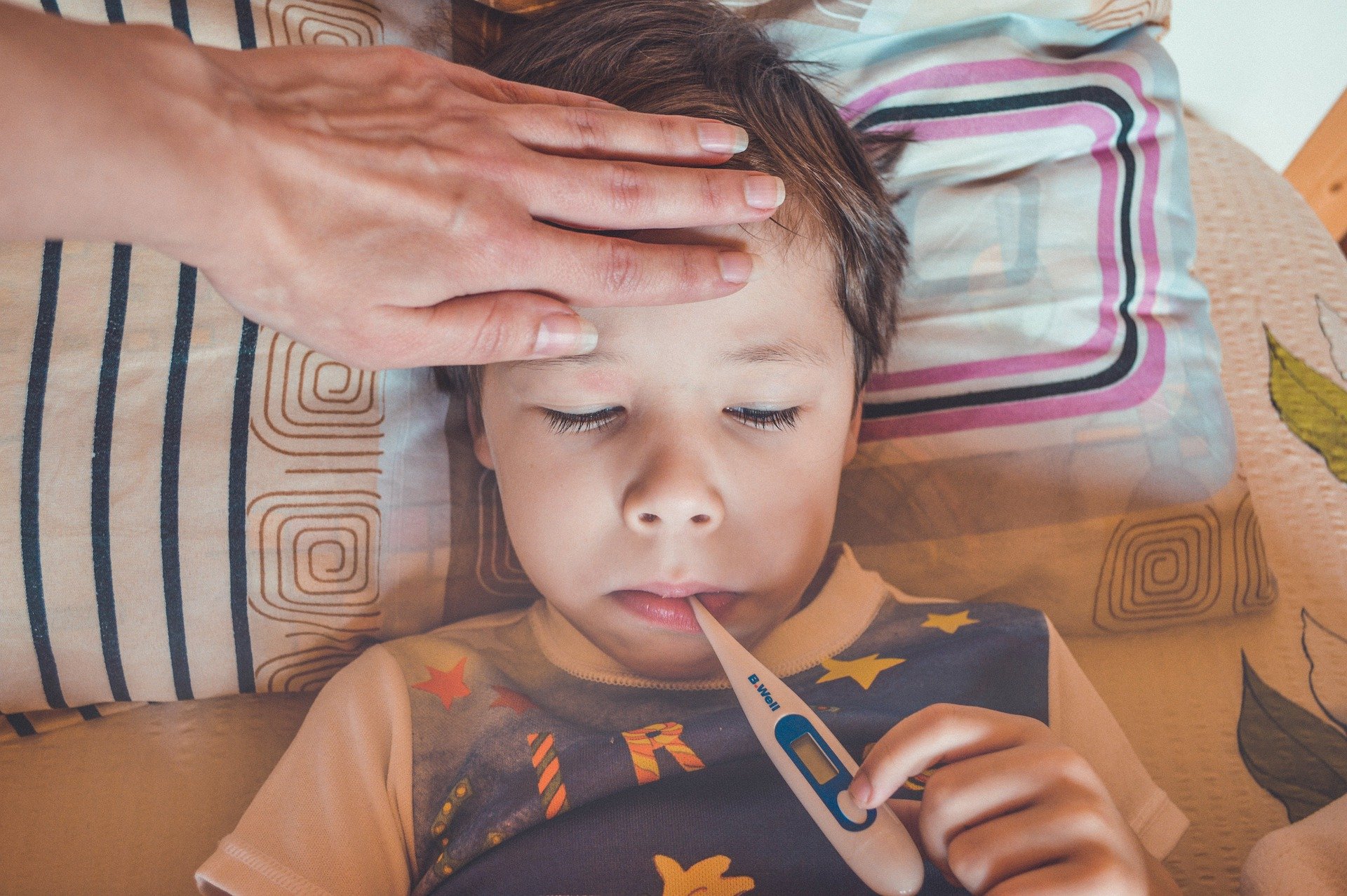Oak Vale Medical Centre
The Fiveways Centre, 215 Childwall Road, Liverpool, L15 6UT
Telephone: 0151 295 9330
Sorry, we're closed

Coffee With Mates – Oak Vale Patient Coffee Mornings NHS Equality campaign launched during Disability Pride Month How would you prepare for an emergency? The Life Rooms – Thursday 18th July Armed Forces Week 2024 iGPc – Saturday Smear clinics Junior Doctor Strikes Carers Week 2024 – Event Thursday 13th June Active Soles: Changing the way we think about workwear to promote physical activity in Cheshire and Merseyside North West man transforms mental health using exercise
What should I do if my child has a high temperature?

Advice for parents and carers on how to look after their child at home if they have a high temperature and when to get help.
It can be scary if you have never seen your child hot and unwell before, and it can make you feel anxious and worried.
A high temperature is 38C or more and is very common in young children. The temperature usually returns to normal within 3 or 4 days.
You can usually look after your child or baby at home. You should:
- give them plenty of fluids
- look out for signs of dehydration
- give them food if they want it
- check on your child regularly during the night
- keep them at home
- give them paracetamol if they’re distressed or unwell
- get medical advice if you’re worried about your child
Call 111 or your GP surgery now if your child:
- has a high temperature that’s lasted for 5 days or more
- is under 3 months old and has a temperature of 38C or higher, or you think they have a high temperature
- is 3 to 6 months old and has a temperature of 39C or higher, or you think they have a high temperature
- has other signs of illness, such as a rash, as well as a high temperature
- does not want to eat, or is not their usual self and you’re worried
- has a high temperature that does not come down with paracetamol
- is dehydrated – such as nappies that are not very wet, sunken eyes, and no tears when they’re crying
Call 999 if your child:
- has a stiff neck
- has a rash that does not fade when you press a glass against it (use the “glass test” from Meningitis Now)
- is bothered by light
- has a fit (febrile seizure) for the first time (they cannot stop shaking)
- has unusually cold hands and feet
- has blue, pale or blotchy skin, lips or tongue
- has a weak, high-pitched cry that’s not like their normal cry
- is drowsy and hard to wake
- is extremely agitated (does not stop crying) or is confused
- finds it hard to breathe and sucks their stomach in under their ribs
- is not responding like they normally do, or is not interested in feeding or normal activities
For more NHS advice and guidance, visit: https://www.nhs.uk/conditions/fever-in-children/
You can also download a helpful booklet containing advice on how to deal will common childhood illnesses here.
Content provided by NHS Liverpool Clinical Commissioning Group (CCG). For more information, please visit www.liverpoolccg.nhs.uk.
Published on Thu, 22 Jul 2021 15:44:44 GMT
Modified on Thu, 22 Jul 2021 15:47:31 GMT
Opening Times
- Monday
08:00am to 06:30pm - Tuesday
08:00am to 06:30pm - Wednesday
08:00am to 12:30pm
01:30pm to 06:30pm - Thursday
08:00am to 06:30pm
Last Thursday of month closed at 1pm - Friday
08:00am to 06:30pm - Saturday
CLOSED - Sunday
CLOSED
Liverpool CCG News
NHS Equality campaign launched during Disability Pride Month
NHS Cheshire and Merseyside is raising awareness of the importance of fully accessible health services for patients across the region with sensory disabilities or other communication needs.
How would you prepare for an emergency?
Emergencies such as flooding, fires and power cuts can affect us all. There are simple and effective steps you can take to be more prepared.
Armed Forces Week 2024
Armed Forces Week is a chance to show our support for the men, women and children who make up the Armed Forces community
Active Soles: Changing the way we think about workwear to promote physical activity in Cheshire and Merseyside
Active Soles is a movement to change the way we think about workwear, based on the belief that active workplaces lead to happier, healthier people which in turn leads to greater creativity, better problem solving and improved productivity.
North West man transforms mental health using exercise
Mental Health Awareness Week 2024 takes place 13–19 May, and this year’s theme is ‘Movement: Moving more for our mental health’.





